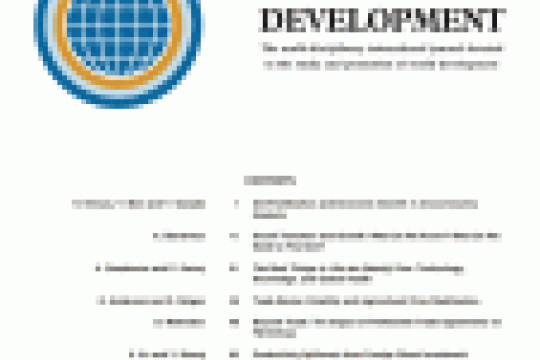We use survey data to investigate how urban households in Ethiopia coped with the food price shock in 2008. Qualitative data indicate that the high food price inflation was by far the most adverse economic shock between 2004 and 2008, and that a significant proportion of households had to adjust food consumption in response. Regression results indicate that households with low asset levels, and casual workers, were particularly adversely affected by high food prices. We interpret the results as pointing to the importance of growth in the formal sector so as to generate more well-paid and stable jobs.
Request a publication
Due to Copyright we cannot publish this article but you are very welcome to request a copy from the author. Please just fill in the information beneath.

